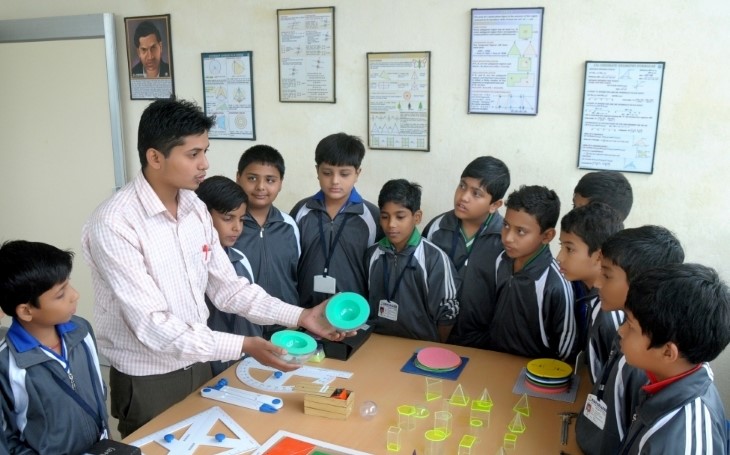- By
- 02 Oct, 2023
- By Admin
Understanding the CBSE Curriculum: A Comprehensive Guide for Parents
Introduction:
The Central Board of Secondary Education (CBSE) is one of
the most recognized and trusted educational boards in India. As a parent,
understanding the CBSE curriculum is essential for supporting your child's
academic journey effectively. In this comprehensive guide, we will delve into
the intricacies of the CBSE curriculum, providing you with valuable insights
and tips to navigate your child's education smoothly.
The Central Board of Secondary Education (CBSE) is a
national-level educational board in India. It manages and governs a vast
network of affiliated schools across the country and even overseas. CBSE's
primary goal is to provide a standardized and high-quality education system to
ensure holistic development in students.
The CBSE curriculum spans from primary to senior secondary
education (Class 1 to Class 12). It is known for its learner-centric approach,
encouraging critical thinking, creativity, and practical application of
knowledge. Key features of the CBSE curriculum include:
2. Focus on Core
Subjects: The CBSE curriculum emphasizes core subjects like Mathematics,
Science, Social Science, and Languages while also encouraging the study of
additional subjects like Physical Education, Fine Arts, and Vocational Courses.
3. Continuous and
Comprehensive Evaluation (CCE): CBSE employs a holistic assessment method
through CCE, which assesses a student's performance through various activities,
projects, and periodic tests, rather than relying solely on final exams.
4. Incorporation of
Life Skills: CBSE integrates life skills education to equip students with
essential skills like communication, problem-solving, and decision-making.
5. Extracurricular
Activities: CBSE schools prioritize extracurricular activities to promote a
well-rounded development, including sports, arts, and cultural activities.
Advantages of CBSE
Curriculum
Understanding the CBSE curriculum's advantages can help you
appreciate why it's a popular choice among parents:
1. National and
International Recognition: CBSE is recognized not only across India but
also by many international universities, making it easier for students to
pursue higher education globally.
2. Well-Structured
and Research-Based: The curriculum is designed based on extensive research
and caters to the evolving needs of the education sector.
3. Emphasis on
Application-Based Learning: CBSE encourages students to apply their
knowledge in practical scenarios, fostering critical thinking and
problem-solving abilities.
How Parents Can
Support Their Child's CBSE Education
Now that we've covered the basics of the CBSE curriculum,
here are some tips for parents to support their child's education effectively:
1. Stay Informed:
Regularly check the CBSE website for updates on curriculum changes, exam
schedules, and important notifications.
2. Encourage a
Balanced Routine: Help your child maintain a balanced routine that includes
both study and recreational activities to prevent burnout.
3. Effective
Communication: Establish open communication with your child's teachers to
monitor their progress and address any concerns promptly.
4. Create a Positive
Learning Environment: Ensure your child has a quiet and conducive space for
studying at home and access to necessary learning resources.
5. Instill a Love for Learning: Foster a love for learning
by encouraging curiosity, reading, and exploring new interests.
Conclusion:
Understanding the CBSE curriculum is pivotal in providing
your child with the best possible educational experience. By staying informed
and actively participating in your child's academic journey, you can help them
thrive in the CBSE system and prepare them for a successful future. Remember,
your support and involvement play a significant role in shaping your child's
educational success.
Subscribe To Our Newsletter
Stay in touch with us to get latest news and update.

